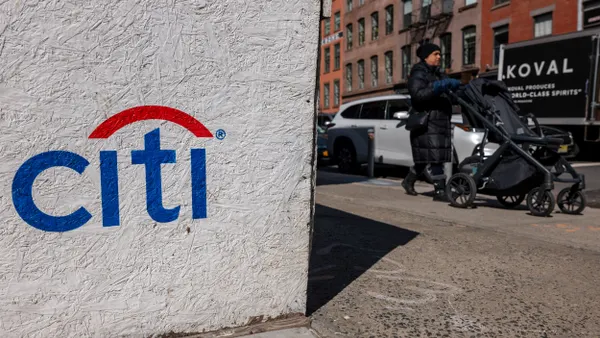Dive Brief:
- Banks may soon be unable to get Community Reinvestment Act credit for offering loans to high-income earners living in lower-income neighborhoods under a revamp of the law Comptroller of the Currency Joseph Otting said his office is considering.
- The Office of the Comptroller of the Currency (OCC) also is mulling a suggestion to give banks CRA credit for investments made in Opportunity Zones. Census tracts designated as Opportunity Zones have at least twice the national average of poverty and unemployment rates, said the Economic Innovation Group, a Washington think tank, according to American Banker. Minority groups make up more than half their population. Opportunity Zones already qualify for special tax credits under the Tax Cuts and Jobs Act of 2017.
- The OCC, Federal Reserve Board and Federal Deposit Insurance Corp. (FDIC) are working to issue a joint proposal on CRA reform "in the next few months," FDIC Chair Jelena McWilliams said in late July. Otting tempered expectation, saying there's no guarantee that either the CRA income limit or Opportunity Zone suggestion would be included in the joint proposal.
Dive Insight:
The potential CRA tweaks came to light amid Otting's tour of lower-income areas of Atlanta on Friday. "Today, we saw what great things can be accomplished when banks, civil rights organizations, nonprofit groups and local advocates work together to meet the needs of their communities," Otting said in a press release. "We also discussed how current CRA regulations hamstring efforts that could revitalize these areas and bring even more lending, investment, and service to where they are needed most."
The idea to link CRA credit to Opportunity Zones came from John Hope Bryant, the CEO of Operation HOPE, a nonprofit dedicated to financial literacy in lower-income areas. The organization is sponsoring the OCC's visit to five cities this month. Bryant said there is about an 80% overlap between Opportunity Zones and areas that qualify for CRA credit.
On the idea to limit CRA credit to low- and middle-income earners, Otting used himself as an example. He said his income would not qualify him for CRA credit, but the Washington, D.C., neighborhood where he lives would.
"Our goal now is to strengthen CRA so that it continues to encourage the flow of billions of dollars into our communities and neighborhoods each year," Otting said. "We can modernize CRA regulations to encourage banks to do even more by clarifying what counts for CRA credit, updating where activity qualifies, making evaluations of bank CRA performance more objective, and reporting results in a more timely and transparent manner."
The CRA, signed into law in 1977, was last revised in 1995.













